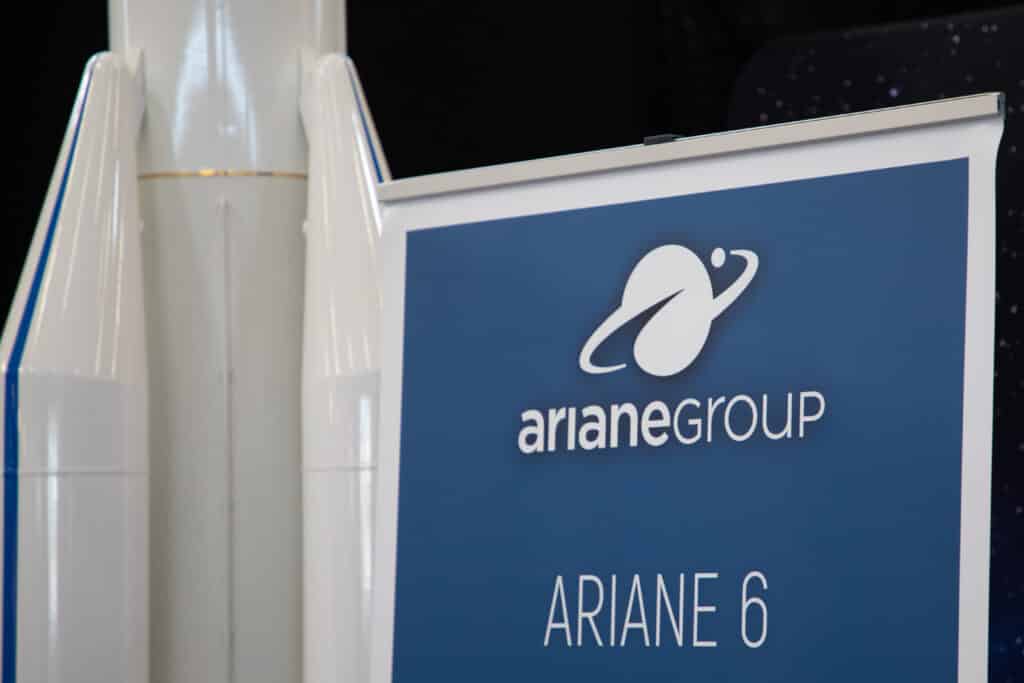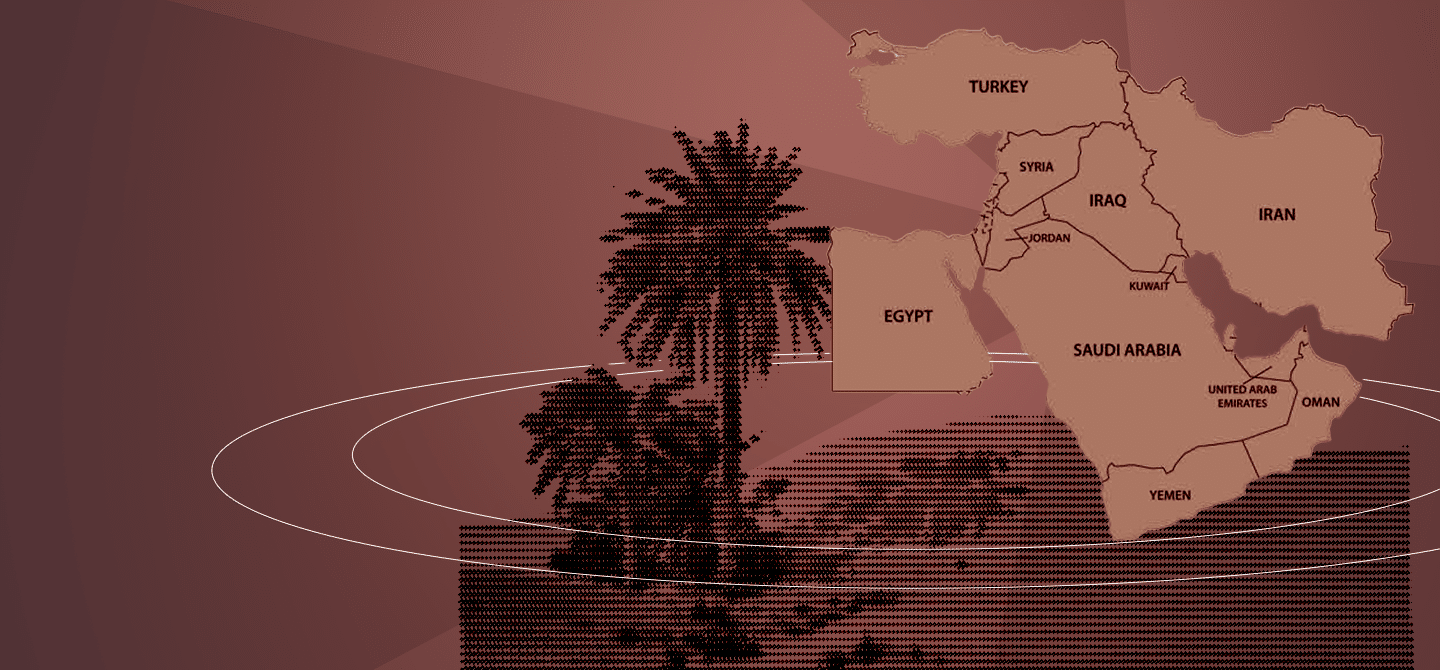Space industry: Europe regains its independence
- Faced with increased international competition, Europe is seeking to (re)gain its autonomy and competitiveness in the space sector.
- Its priority is to strengthen its autonomy in the military field, maintain its excellent level of research and develop its commercial competitiveness.
- France is Europe’s leading space nation and its start-up ecosystem, supported by the CNES, is proving to be extremely dynamic.
- The European Space Act would promote the development of a coherent space policy in Europe and prevent non-European players from engaging in unreasonable commercial activities on the continent.
- Funding and management of major space programmes by the European Commission would enable Europe to aim for greater competitiveness.
Faced with significantly increased international competition over the last decade and recent U‑turns by the Trump administration, Europe is seeking to (re)gain its autonomy and competitiveness in the space industry, despite temptations at national level for countries to continue developing their own capabilities. Lionel Suchet, interim CEO of the French National Centre for Space Studies (CNES), analyses the challenges of the current situation for France and the continent.
The space industry has undergone a major revolution over the past decade. What are the top priorities for the French and European space industries today?
Lionel Suchet. In countries that pioneered space exploration, such as the United States, Russia and France, space agencies developed around two highly strategic and, as such, state-run pillars of activity: research and defence. These applications remain highly relevant today. Research needs space resources more than ever. Take the modelling of climate change, for example, where satellite observation plays a central role. In the military arena, space has not only become an essential support for the armed forces but is also emerging as a new theatre of conflict.
Over the past decade or so, a third pillar has developed alongside the first two, responding not to institutional logic but to that of the open economy. The proliferation of Earth observation missions for scientific purposes and the digital revolution, which has made it possible to process satellite data on a massive scale, have paved the way for a wide range of applications, attracting new private investors willing to take greater risks.
This is a very exciting time for the entire sector. But it is also marked by increasingly fierce international competition and some tensions among European countries to develop their own space capabilities. Europe’s priority is therefore to strengthen its cohesion and sovereignty in the military arena, maintain its level of excellence in research, and build real competitiveness at the continental level in the commercial arena.
While space start-ups have flourished in recent years, major European groups are now experiencing significant difficulties, leading companies such as Airbus and Thalès to consider merging their space operations. How well is French industry faring?
It’s important to keep in mind that France is by far the leading space nation in Europe. Our space industry is extremely well-developed and highly skilled. France – and through it, Europe – has a strong industrial base thanks the investments made by successive governments since 1961. Alongside established industrial players, the French start-up ecosystem is proving to be very dynamic. CNES has supported its development, particularly through France 2030. €1.3bn has been allocated, and is now almost fully committed, to support innovative initiatives.

But it would be pointless to pit the two models against each other, as they benefit from each other. The start-up ecosystem is now entering a phase of stabilisation, which will inevitably lead to some consolidation. As for the large groups, although they are currently experiencing difficulties due to the collapse of the market for private geostationary satellites resulting from competition from Starlink in the United States, they understand they will have to make significant efforts to remain competitive. They have already taken steps in this direction: major restructuring plans have been announced, inspired in part by the practices of smaller companies that are beginning to grow, and joint projects with start-ups are developing. And as you point out, they are looking into opportunities to consolidate their activities, but no decision has yet been made on either the principle or the approach.
What are the French and European priorities in the field of space defence?
France has taken a significant lead in this field in Europe. We have been working for years to strengthen our capabilities, which we make available to other European countries. We have state-of-the-art observation satellites, including CSO‑3, launched in March by Ariane 6, two next-generation encrypted telecommunications satellites thanks to the Syracuse IV programme, and space-based electromagnetic listening capabilities, technologies that France is the only European country to have mastered.
The top priority at the European level seems to me to be political: we must convince all Member States of the urgent need for genuine European autonomy when it comes to defence, something France has always advocated. On the technical front, one vital issue was to regain autonomous access to space. The successful launches of Ariane 6 in July 2024 and March 2025, and the return to flight of Vega‑C at the end of 2024, are therefore excellent news.
A major development is finally underway in the field of direct action in space: it is regrettable, but this threat is very real. Today, we know that foreign powers are capable of sending small manoeuvrable satellites to spy on, jam signals or threaten satellites belonging to other countries. We must therefore equip ourselves with the means to characterise these threats and even respond to potential attacks. We are already working on this with the YODA demonstrator programme, two patrol satellites that will monitor the environment of our space systems in geostationary orbit and pave the way for the launch of operational capabilities by 2030.
Relations within the European Space Agency (ESA) are not always easy. The CNES, in particular, makes no secret of its reservations about ESA’s “geographical return” policy, which stipulates that each Member State receives industrial contracts in proportion to its contribution to the agency’s projects. What alternative do you propose?
Space has long been seen, quite rightly, as a model for European integration, and the European Space Agency (ESA), founded in 1975, has played a key role in the development of Europe’s space programme. Geographical return proved very effective at a time when everything had to be built from scratch. But today it is becoming counterproductive, as it amounts to duplicating European forces at a time when the industrial fabric on the continent is already very dense and competition with the United States, China and India is growing.
It is time to aim for greater European competitiveness and therefore to move to a different mode of operation. But which one? We are calling for the European Commission itself to finance and manage major space programmes. Since 2009, it has had ad hoc legal authority, and its use of industry is based on competition rather than geographical return. I won’t hide the fact that France is fairly isolated within ESA on this subject, which is understandable given its prominent position. But we are convinced that this is the way forward, and it seems that our views are being heard at Commission level: the European Union’s space budget has been increasing steadily since 2009, and the new European Commissioner for Defence and Space, Andrius Kubilius, has again mentioned a threefold increase in this amount for the next financial framework.
Isn’t there a risk of overlapping with ESA?
This is indeed another pitfall that must be avoided, as ESA has developed considerable expertise in the management of large programmes. But it is entirely possible that the EU could draw on ESA’s expertise to monitor and develop major programmes at the operational level, while retaining its own rules on governance and procurement. This would not, of course, prevent ESA from continuing to fund and manage certain specific programmes…
It is time to aim for greater European competitiveness and therefore to move to a different mode of operation
To be honest, I am hopeful that things will move in this direction. Internal discussions within ESA and its discussions with Member States show that it is beginning to accept the idea of becoming the executive arm of a European policy led by the EU. This is nothing to be ashamed of: CNES, the executive arm of French space policy, is proof of this.
Mr Trump’s recent announcements have cast doubt on the United States’ intentions regarding its cooperation with Europe in space. Are you concerned about the United States turning inward?
The United States is a long-standing and valued partner of France and Europe, particularly on issues relating to the environment and exploration. The oldest measurement taken from space, sea level, is the result of a historic collaboration between CNES and NASA’s Jet Propulsion Laboratory. We are also involved in major manned and unmanned exploration programmes – the latter being of great interest to our scientific community – to the Moon and Mars: Artemis, but also the US mission to return samples from Mars, Mars Sample Return, and ExoMars, a European mission to explore the surface of the Red Planet with a rover, which was to be launched by a US launch vehicle.
At this stage, we have not received any official message from NASA questioning these partnerships. But the current signals are indeed catastrophic, both in terms of rhetoric and in terms of layoffs at NASA, JPL2 and NOAA3. We must therefore remain on high alert: it is not a question of Europe taking the initiative to halt collaborations, but of preparing contingency plans in case the worst happens.
What is Plan B?
I don’t believe it is in Europe’s interest to aim for complete autonomy in these areas. While total sovereignty is necessary in the field of defence, it is not necessary in the fields of research and exploration.
Our values on this point are completely different from those of the United States, for whom exploration is synonymous with national conquest. Europe, for its part, has always promoted manned spaceflight and exploration of the solar system as a tool for international cooperation. If the US policy change is confirmed, other countries could be affected, with which we could consider cooperating: I am thinking in particular of Japan and India, whose space capabilities are developing rapidly, particularly in low Earth orbit.
This situation also makes a case for the European Union to take the lead on major programmes rather than ESA, which by its very nature lacks political visibility and is naturally guided solely by the industrial interests of its Member States.
In December 2022, when France held the presidency of the Council of the European Union, Emmanuel Macron challenged Europe on its intentions regarding manned space exploration. In your opinion, should Europe participate at all costs in projects to establish a lunar base?
This is an eminently political question. We have the technical capabilities to do so, provided we have the necessary financial resources: we have already launched initiatives to produce cargo ships that automatically resupply space stations, and it is entirely feasible to develop these for manned flights.
With regard to the prolonged human presence on the Moon, which is currently being considered, it is important to bear in mind that establishing a lunar base raises the question of land ownership, which is not a neutral issue from either a legal or political point of view. In the future, the rules for using resources in situ and the legislation to be applied on another celestial body, which are new issues for humanity, are likely to be discussed only among those who will be living there.
In line with the Stand Up For Science movement, French institutions have announced that they are ready to welcome American researchers. Is CNES opening its doors to American researchers?
We were very shocked by the dismissal of trusted contacts within NASA. We are obviously ready to welcome them if they wish to come.















